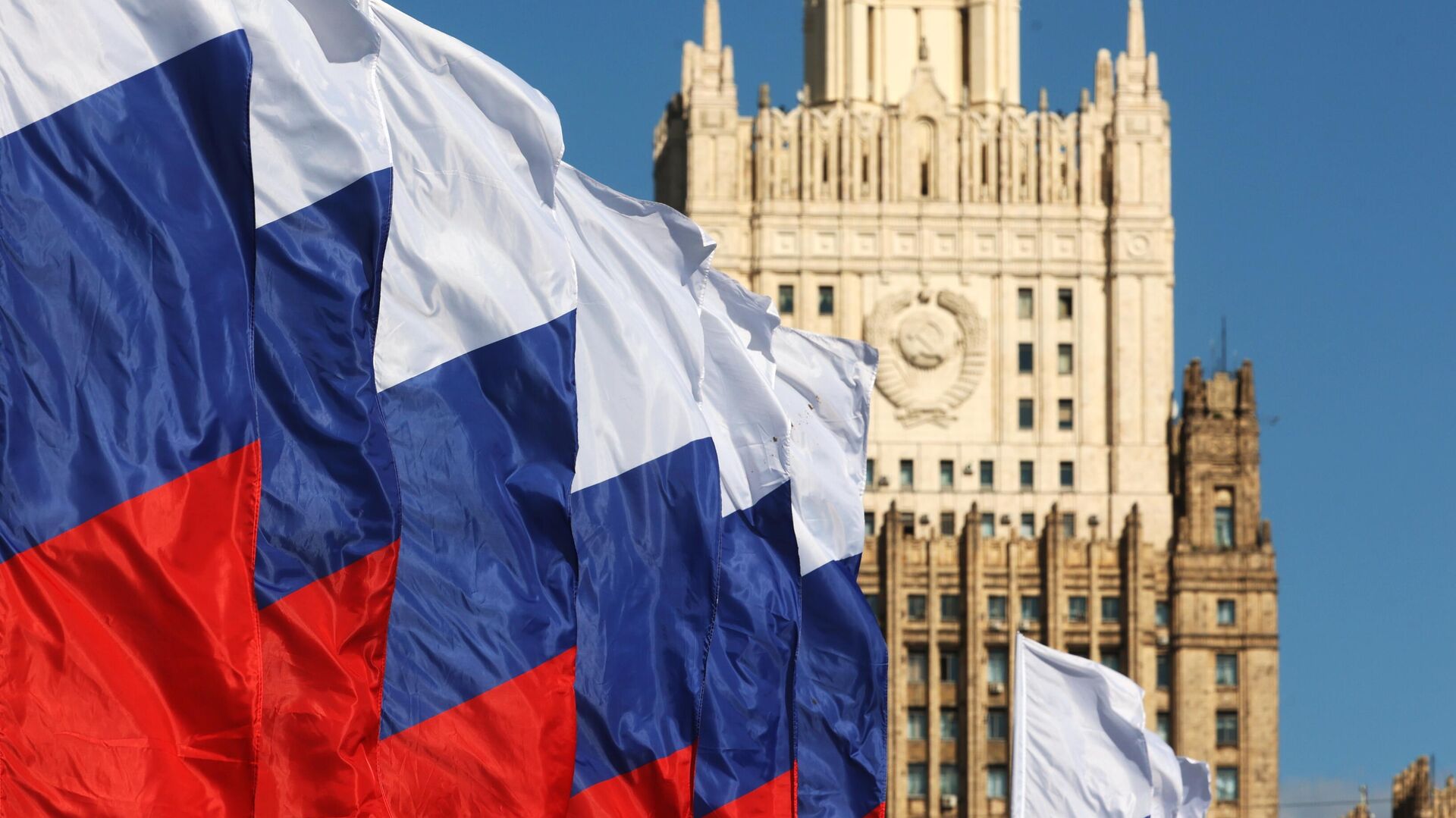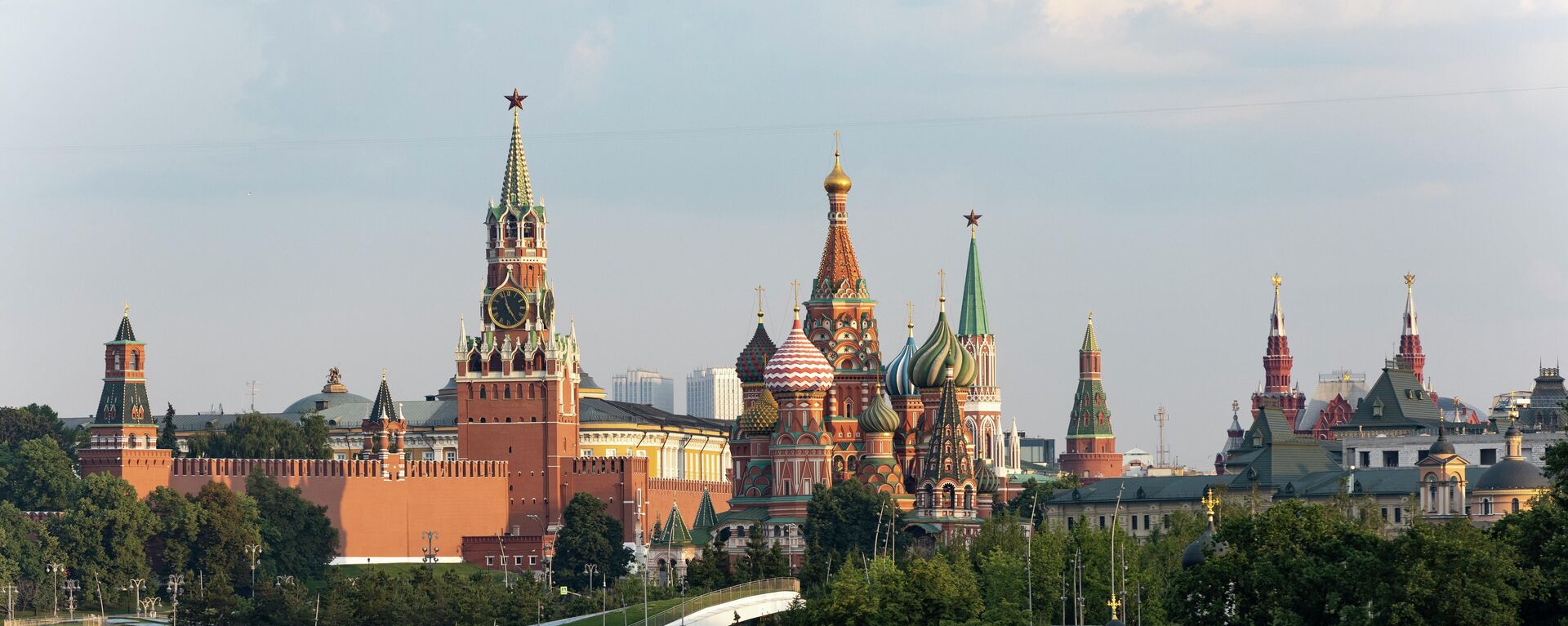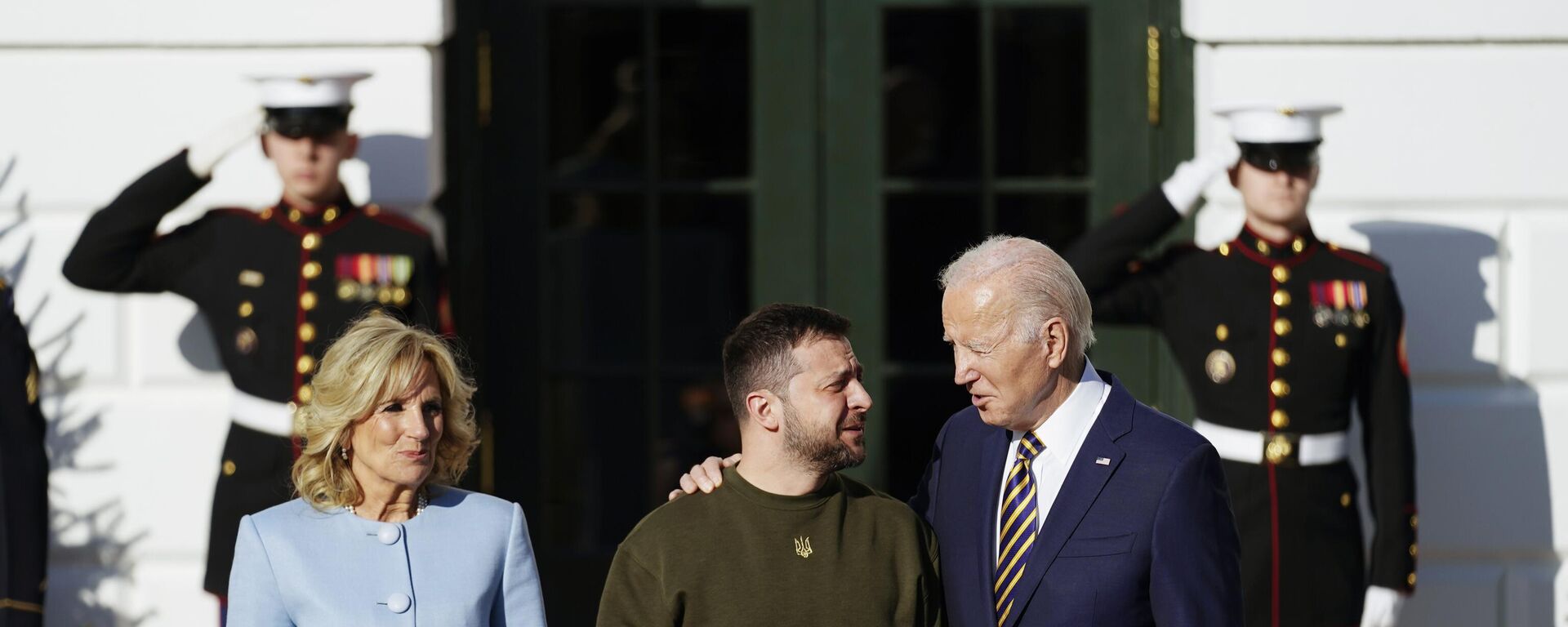Ukraine Crisis Not Local Conflict, Has Geopolitical Perspective - Russian Foreign Ministry
04:39 GMT 21.10.2024 (Updated: 07:20 GMT 21.10.2024)

© Sputnik / Vitaliy Belousov
/ Subscribe
MOSCOW (Sputnik) - The Ukrainian crisis is not a local conflict, it has a geopolitical perspective, Alexey Polishchuk, the director of the Russian Foreign Ministry's Second CIS Department, told Sputnik.
"You don't have to be a rocket scientist to understand that the Ukrainian crisis is not a local conflict, it has a geopolitical perspective and is fundamentally different from the German, Korean, Cypriot and other scenarios that you are talking about," he said, commenting on media reports that, in the opinion of some Western and Ukrainian officials, the conflict can only be resolved according to the "German scenario."
"Our position on its settlement was clearly outlined by the president of Russia. This is the complete withdrawal of Ukrainian troops from the reunited regions, recognition of their Russian affiliation, confirmation of the neutral, non-aligned, non-nuclear status of Ukraine, its demilitarization and denazification, ensuring the rights, freedoms and interests of Russian-speaking citizens, and the lifting of anti-Russian sanctions," Polishchuk added.
The very fact of putting forward a "victory plan" disavows the statements of the Kiev leadership about striving for peace, since its essence lies in the maximum escalation of the conflict, Alexey Polishchuk told Sputnik.
"The very fact of putting forward a 'victory plan' disavows the statements of the Kiev leadership about the desire for peace, since its essence lies in the maximum escalation of the conflict and the involvement of NATO countries in it. What Zelensky tried to sell under the guise of a 'victory plan' during his recent tour of the United States and Western Europe, and then presented in the Verkhovna Rada and at the EU summit, resembles another cry for help," Polishchuk said.
He believes that Zelensky "is again begging for weapons, money, admission to NATO, permission to strike deep into Russia," which is necessary for the physical and political survival of the Kiev regime, its leader and members of his team.
"And for this, Ukraine will pay with its sovereignty, natural and economic resources and the lives of its own citizens," the diplomat concluded.
Moscow warns its friends and partners against supporting Kiev's "peace formula" and "peace summit," these are ultimatum initiatives, Alexey Polishchuk said.
"There is neither a plan nor a victory in Zelensky's 'victory plan.' Just as there was neither peace nor a formula in his 'peace formula,' and there was neither peace nor a summit in the 'peace summit' in Burgenstock. We warn our friends and partners against supporting these ultimatum initiatives and formats, into which they are trying to be drawn by methods of deception and pressure," Polishchuk said.
The Kiev regime poses a threat to the security of Ukraine and its citizens, Polishchuk said.
"We must not confuse the security of Ukraine and the well-being of the Kiev regime, which itself poses a threat to the security of the country and its citizens," he explained.
According to the diplomat, "the best guarantee of Ukraine's security is a return to the origins of its statehood, a neutral, non-aligned, non-nuclear status, respect for the rights of ethnic Russians, Russian-speaking citizens, protection of the Russian language, and the educational and linguistic rights of national minorities."
The US presidential election is not likely to significantly impact the Ukrainian crisis, as both parties in Washington share the same stance in terms of supporting Ukraine and fighting Russia, Aleksey Polishchuk said.
“The US election is not likely to have a significant impact on the situation around the Ukrainian crisis. It is well-known that there has long been a bipartisan consensus regarding support for Ukraine and fighting Russia,” the diplomat said.
Meanwhile, Kiev’s recent statements are definitely aimed at influencing the US presidential campaign in a way beneficial for Ukraine, Polishchuk added.
On October 16, Volodymyr Zelensky presented the so-called "victory plan" in the Ukrainian parliament. The document includes five points and three secret additions. In particular, the first point implies inviting Ukraine to NATO with subsequent membership, the second — lifting restrictions on long-range weapons strikes on Russian territory, the third — the deployment of a "comprehensive non-nuclear deterrence package" of Russia in Ukraine. Zelensky emphasized that the implementation of the plan "depends on partners."
Kremlin spokesman Dmitry Peskov said that a real peace plan for Kiev would be the realization of the futility of the policy they were pursuing. He believes that Zelensky's new "peace plan" may actually repeat the US plan, which is to fight Russia to the last Ukrainian. According to Peskov, in order to achieve peace, Kiev must sober up and realize the reasons that led it to the conflict.



